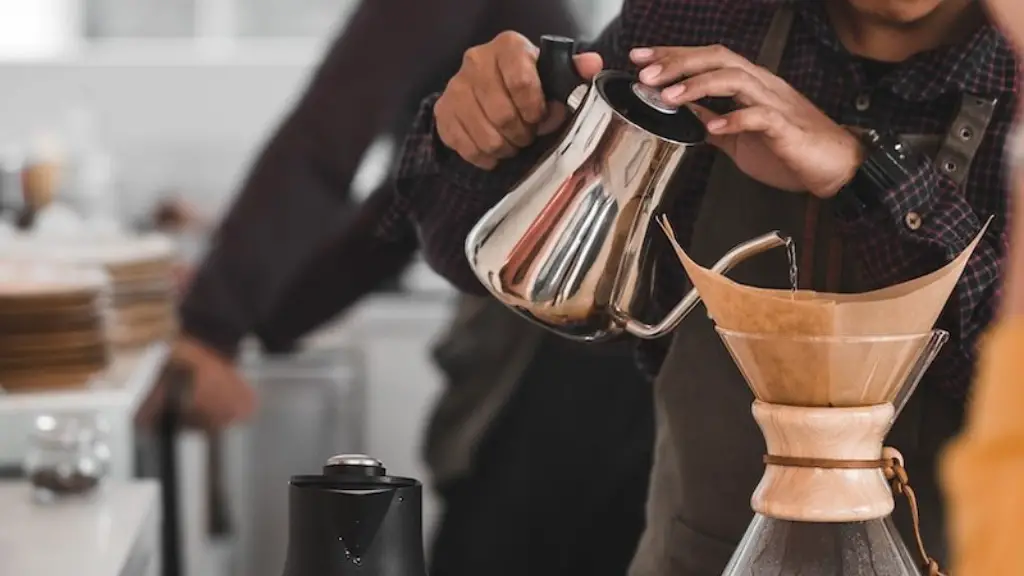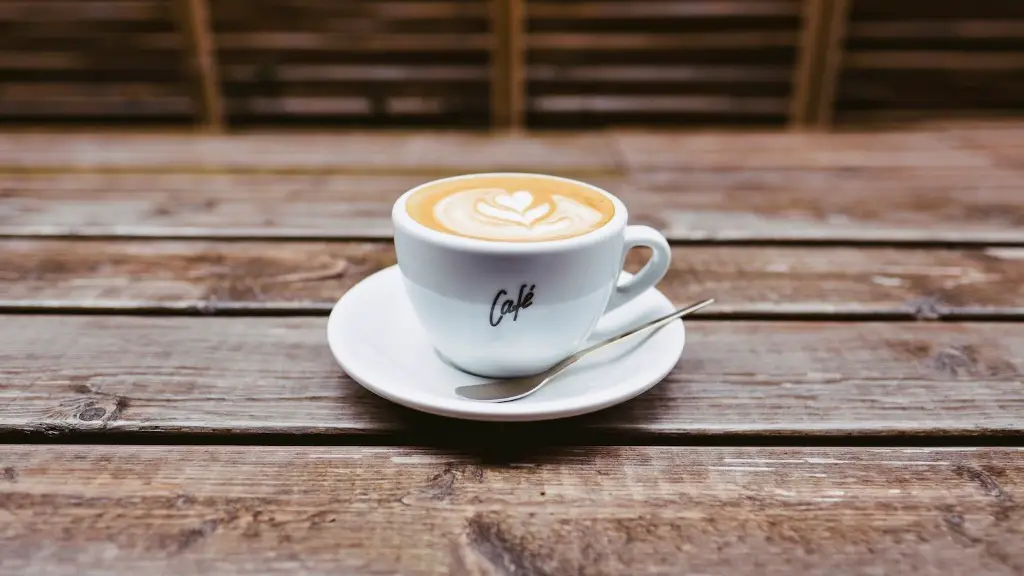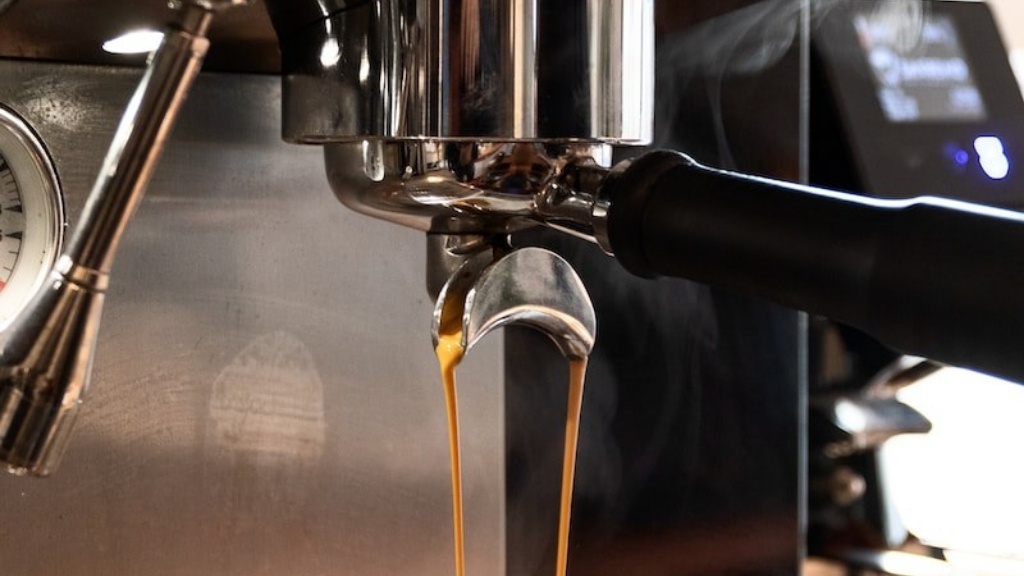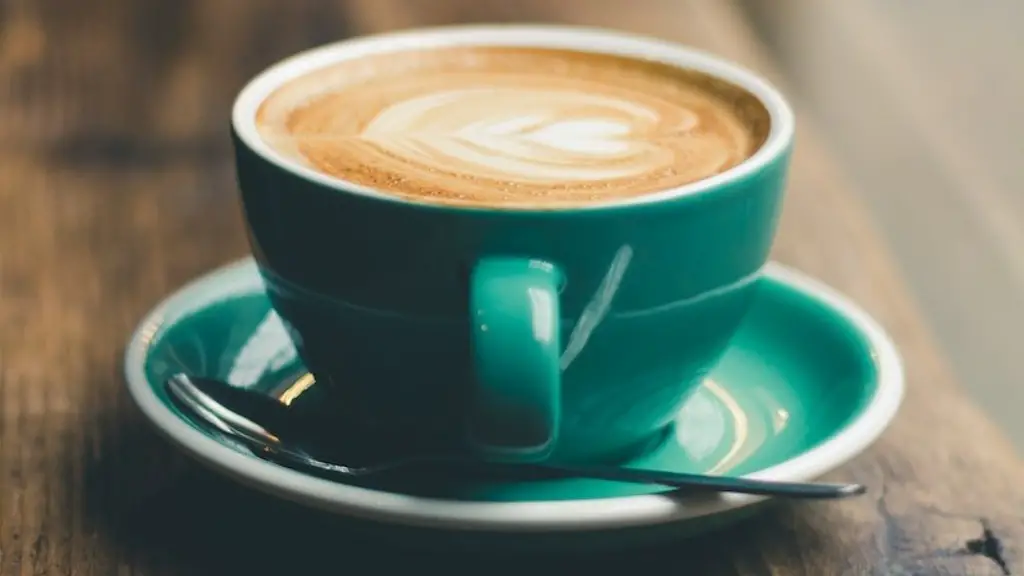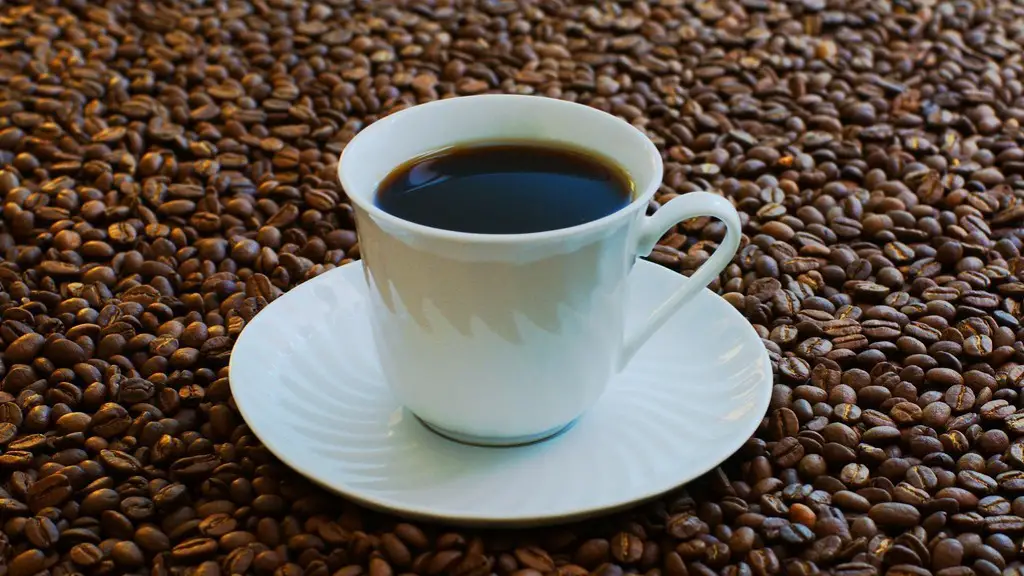Coffee has been a staple part of breakfast for centuries, however today its popularity is starting to flood into the evening too. The question is, is it safe to drink coffee in the evening? Let’s take a closer look at the potential effects of coffee on the body and how you can stay safe.
Caffeine is the main ingredient in coffee that keeps us alert and energized, and it does this by blocking the neurotransmitter in our brains called adenosine. This allows more dopamine and norepinephrine to travel between your brain’s nerve cells, and this produces a stimulant effect and our alertness increases.
Experts recommend that our daily intake of caffeine should be limited to four hundred milligrams or less. One standard ten-ounce cup of coffee contains approximately ninety-eight milligrams of caffeine, so it is important to pay attention to how much we drink, especially in the evening.
Research has recently shown, drinking caffeinated drinks six hours before bedtime can lead to poor sleep. As we all know, sleep is critical for our mental and physical health. Caffeinated drinks can make it more difficult to fall asleep, and can disrupt our sleep while we are asleep.
Studies have seen that caffeine can also affect our digestive systems. Drinking it can have a negative effect on our gut health by irritating our stomach lining and decreasing the amount of friendly bacteria in our gut. This can result in an upset stomach and heartburn.
However, coffee can also have a positive effect on our health. Moderate consumption (three to four cups a day) can lead to increased alertness and productivity. It can also boost physical performance, help burn fat and lower overall risk of type II diabetes.
The verdict? Drinking coffee in the evening can be safe in moderation, but it is important to pay attention to how much caffeine you are consuming. To ensure that you are not over consuming caffeine, be sure to keep track of the amount of coffee that you are drinking during the day. Additionally, be aware that coffee can interfere with your ability to fall asleep. If you are sensitive to caffeine, it is best to avoid drinking coffee late in the day.
The Environment
In addition to the potential health impacts, it is also important to consider the environmental impact of coffee. Since coffee beans have become increasingly popular, the demand for coffee is projected to increase. This has led to a large amount of deforestation as countries are cutting down trees to make more room for coffee plants. In addition, this deforestation also increases the emissions of carbon dioxide into the atmosphere and can lead to other environmental problems.
As the demand for coffee rises, so too does the amount of resources needed to create the product. This can include the large amounts of water needed to grow the plants or the energy used to roast the beans. Coffee companies are increasingly becoming aware of these environmental concerns and are working to reduce their carbon footprint.
Most companies are now utilizing sustainable practices. Companies like Starbucks and Nespresso are now using recycled materials for their packaging and are looking for more sustainable methods for growing and processing the coffee plants. These practices are helping to reduce the environmental impact of coffee and are leading to a better and more sustainable future.
The environmental effects of coffee are something to consider when deciding when and how much coffee to drink. If you choose to drink coffee in the evening, be sure to look for environmentally friendly options or try to reduce your overall coffee consumption to help minimize its impact.
The Alternatives
If you want to enjoy something that gives you the energy boost of coffee without the potential side effects, there are a few good alternatives. One of the most popular alternatives is green tea. Green tea is a good source of caffeine, but with less than a quarter of the caffeine content of a standard cup of coffee.
Yerba mate is another great option as it offers an even lower quantity of caffeine. Yerba mate is an herbal tea that is made from the leaves and stems of the yerba mate plant and is a popular beverage among many cultures around the world.
Cocoa is another good option. Cocoa is made from the seed of the cocoa tree and has a low caffeine content. It is also a good source of antioxidants, magnesium, calcium and potassium.
Lastly, there are a number of herbal teas out there on the market that can give you a caffeine free boost and can also help you relax and unwind. Examples include chamomile, lavender and peppermint teas.
The Bottom Line
When it comes to deciding whether or not to drink coffee in the evening, it is important to consider the potential benefits and risks. Caffeine can be beneficial, however drinking it too late in the day can disrupt your sleep. As well, it is also important to consider the environmental impacts of drinking coffee.
Fortunately, there are several alternatives that can give you the energy boost of coffee without the potential side effects. If you are craving something in the evening, it is best to opt for one of these options and avoid drinking coffee late in the day.
Coffee and Weight Loss
We can’t talk about coffee without mentioning the potential to aid with weight loss. Coffee is a calorie-free drink and can be part of a calorie-restricted diet. The caffeine content in coffee increases your basal metabolic rate, which leads to burning more calories. Caffeine has also been shown to reduce appetite and increase satiety, which could lead to eating less over time.
In addition, coffee also contains several other compounds that could help boost your metabolism and help you burn more fat. These compounds include polyphenols, chlorogenic acids and N-Coumaroyl tyramine. All of these compounds act as thermogenics in the body, which means that they help to increase your body’s core temperature, leading to an increase in caloric expenditure.
It is important to note that coffee alone is not a miracle for weight loss. You will still need to eat a healthy diet and exercise regularly to see real results. But if you are trying to lose weight, drinking a cup of coffee in the evening could be beneficial.
How to Maximize Caffeine Effects
If you choose to drink coffee in the evening, there are a few things you can do to maximize its effects. First, make sure that you are drinking high-quality coffee. Quality coffee is sweeter and has a better flavor. Furthermore, it is also important to stay hydrated. Coffee can be dehydrating, so it is important to consume an adequate amount of water throughout the day.
Lastly, you will want to time when you drink your coffee. Health experts recommend drinking your coffee about one hour before you need to be alert or productive. It takes about forty-five minutes for the caffeine to take effect, and the peak energy boost usually occurs at about the one-hour mark.
So if you are looking for a caffeine pick-me-up in the evening, it can be done safely and in moderation. Just make sure to pay attention to the quality of your coffee, stay hydrated and time your coffee breaks accordingly.
